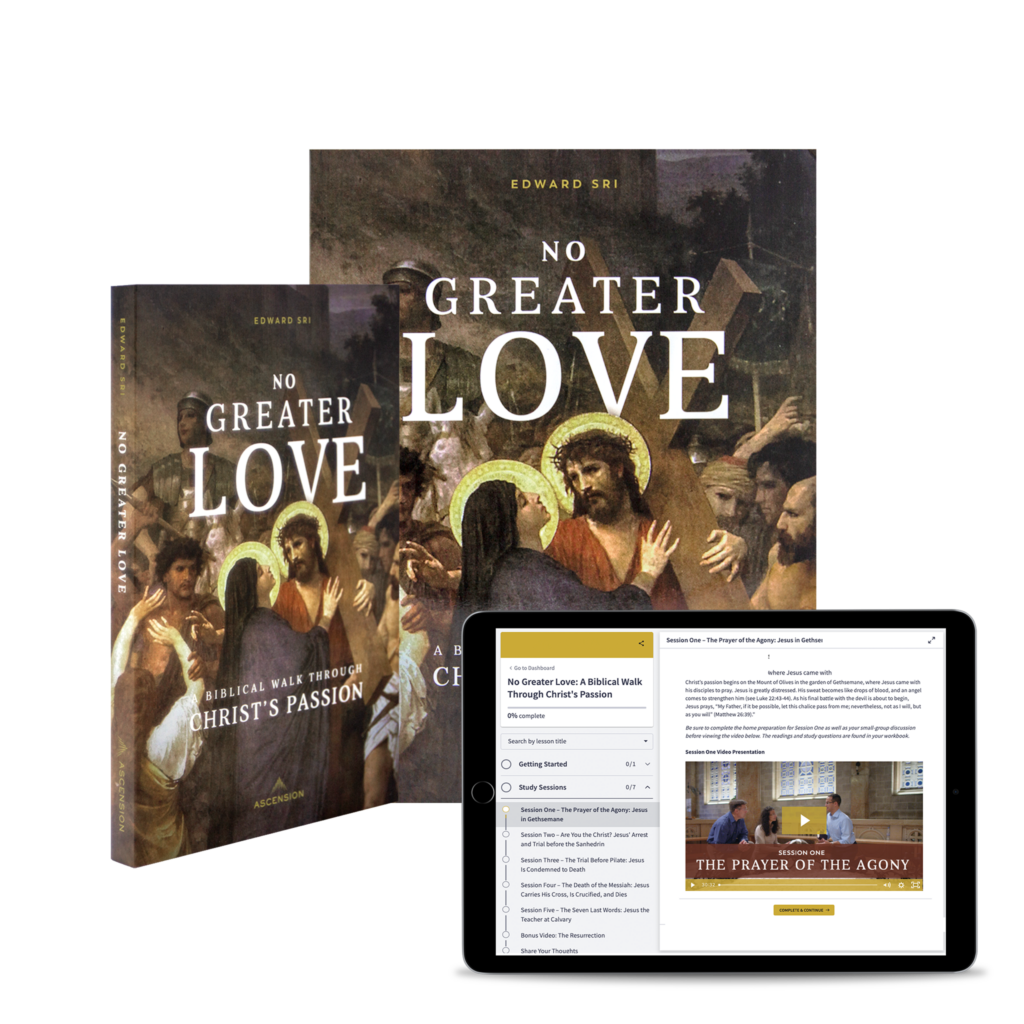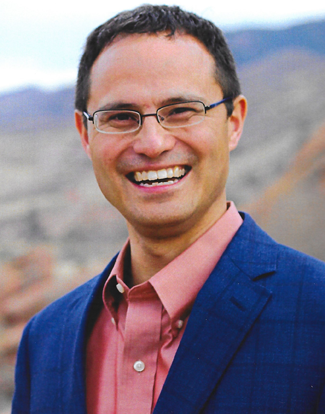“Father, if it is possible, let this cup pass from me”
Matthew 26:39
You’ve heard this phrase before in the Passion story when Jesus prays to God the Father in the Garden of Gethsemane.
But it’s a little baffling.
What does Jesus mean by this?
Is Jesus suddenly getting cold feet and considering backing away from his mission to die for our sins?
Read on to learn about what the “cup” symbolizes, what Jesus’ prayer means, and a life-changing reality to apply to our lives.

Will You Follow Jesus to Calvary?
Filmed on location in the Holy Land, No Greater Love: A Biblical Walk Through Christ’s Passion is a pilgrimage that reveals Christ’s amazing love for us.
The Cup
In the Old Testament, the cup is a symbol for God’s punishment poured out on the sinful people (see Isaiah 51:17, 22; Jeremiah 25:15–16; Ezekiel 23:33; Lamentations 4:21). It is used this way in the book of Revelation as well (see Revelation 14:10; 16:19).
Jesus himself speaks of the “cup” as a metaphor for the suffering and death he will face as he takes on the punishment for our sins (see Matthew 20:22–23). As he is about to actually drink the cup of his suffering, Jesus is feeling the full weight of what this means for him. Pope Benedict XVI once explained, “Jesus’ fear is far more radical than the fear that everyone experiences in the face of death; it is the collision between light and darkness, between life and death itself—the critical moment in human history” (Jesus of Nazareth, Part II (San Francisco: Ignatius Press, 2011), 155–166.
Christ’s Humanity
So did Jesus consider changing his mind about dying for our sins?
Absolutely not.
His prayer simply reflects the fact that Jesus is truly human. Since suffering and death are repulsive to human nature, the torturous death Jesus is about to endure would not be something he would look forward to. In other words, if Jesus is truly human, he would not be saying, “I can’t wait to do this!”
Suffering, crucifixion, and death are repugnant to human nature. If Jesus is truly human, he would be repulsed by the thought of what he is about to endure. His prayer, therefore, “expresses the horror that death represented for his human nature” (CCC 612).
But Jesus is not merely human; he is also divine. Unlike our weak, fallen wills, Jesus’ human will is perfectly united to his Father’s (see CCC 475). That is why he says in the same prayer, “Not as I will, but as you will” (Matthew 26:39).
Though he feels aversion to death in his human nature, he also is completely willing to embrace the Cross for our salvation and fulfill his Father’s plan. Jesus looks death square in the eye, feels the full weight of what he is about to bear, and still gives a wholehearted yes.
Jesus’ example challenges us to be more like him. When we face suffering, we often hesitate to do the right thing or shrink from God’s will. We fear making sacrifices, we fear change, we fear the unknown, and we let our fear of suffering prevent us from doing what is right. Jesus, however, faces that suffering, feels the full force of it, and still freely embraces it for the sake of our salvation, completely accepting the Father’s will.

Will You Follow Jesus to Calvary?
Filmed on location in the Holy Land, No Greater Love: A Biblical Walk Through Christ’s Passion is a pilgrimage that reveals Christ’s amazing love for us.

Dr. Edward Sri is a theologian, author, FOCUS Vice President of Formation and host of the All Things Catholic Podcast. Learn more about his work at edwardsri.com.






as we know, but do not acknowledge, only GOD can give life and only GOD can take life.
Is it a prayer to not suffer, or more of a prayer to continue to love and serve his flock while on Earth?
As parents, we will gladly face extreme pain in order to keep our children safe.
As parents, the greater desire is to assist our children while we still have breath.
As parents, a great sorrow is in being imprisoned or dying while we still have work to do for those whom we agape-love.
But we should follow Christ in praying for what we desire, but accepting God’s will above ours.
Yes